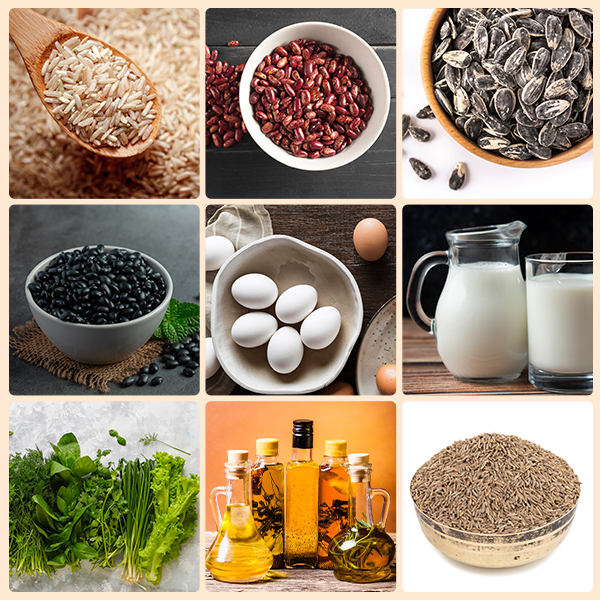Healthy Ageing: The Ultimate Guide to Vitamin B1
Blogs16 Jun 2025
IN THIS ARTICLE
Vitamin B1 also known as Thiamine is a water-soluble vitamin which is naturally present in some foods, added to certain food products and made available as nutritional supplements too. When learning about the health and nutrition of many foods, you will notice Vitamin B1 come up. What is this nutrient and how does thiamine benefit our bodies? Let’s find out.
The Role of Vitamin B1 in the Body
Vitamin B1 or Thiamine is known to play a crucial role in energy metabolism, and the growth and function of cells. Here is everything you need to know about the benefits of Vitamin B1 for the body:
- Energy production: Thiamine may help increase energy production and act as an important coenzyme in the conversion of glucose to energy. It also plays an important role in metabolic reactions and the production of adenosine triphosphate (ATP), which our cells use for energy.
- Cognitive function and mental health: Ageing might lead to cognitive decline. This is a major health concern and exploring foods and nutrients that can help prevent this is very important. Research has found that older adults who consumed an adequate amount of Vitamin B1 saw better cognitive function.
- Diabetes management: Some studies have shown Vitamin B1 to be lower in people with diabetes.
- Heart health: A few studies have found that a significant percentage of chronic heart failure patients tend to be deficient in Vitamin B1.
- Digestive Health: Vitamin B1 is an important cofactor for several enzymes and processes. Many gut bacteria require thiamine for metabolic activity. Science has found that Vitamin B1 can have a significant positive effect on the survival and competition of gut bacteria which may in turn promote better gut health and digestive health.
- Immune system support: Thiamine also provides protective benefits that may support immune function. Thiamine has antioxidant and anti-inflammatory effects which may reduce oxidative stress and inflammation and prevent many chronic conditions and infections.
Recommended Daily Intake: How Much Vitamin B1 or Thiamine Should You Consume Daily?
Recommended daily allowance (RDA) for adults based on their activity levels according to the Indian Medical Council of Research (ICMR) is the following:
Level of exercise Male (mg/day) Female (mg/day) Sedentary 1.4 1.4 Moderate 1.8 1.7 Active 2.3 2.2
Symptoms of Vitamin B1 Deficiency
If you don’t get enough Vitamin B1 through your food, you may have a thiamine deficiency. Other reasons for a Vitamin B1 deficiency are if your body eliminates thiamine or absorbs very little of this nutrient.
Vitamin B1 deficiency can cause
- Weight loss
- Change in appetite
- Confusion
- Memory loss
- Muscle weakness
- Heart issues
- Weak reflexes
Food Sources of Vitamin B1

You will find thiamine in
- Whole grains -whole wheat, brown rice, white rice, oats
- Cereals
- Nuts, seeds, oils - sunflower seeds
- Legumes - black beans, mussels
- Green leafy vegetables - spinach, fenugreek leaves
- Vegetables - beans, peas, green chillies, garlic
- Spices and condiments like mustard seeds, poppy seeds, cumin seeds, red pepper etc.
- Organ meats
- Eggs
- Milk and milk products
Include these foods into your diet daily to get all-round nourishment and thiamine. You can also opt for supplements if your doctor prescribes you some. However, simply eating more whole grains, meat and fish, you should be able to increase your vitamin B1 levels and maintain good health.
Conclusion
Vitamin B1 or thiamine is an important nutrient that helps in the overall growth and development of the body. It additionally also supports digestion, heart health, brain health and more. Increasing your intake till you have the daily required intake of Vitamin B1 can be a good way of keeping yourself healthy and reducing the risk of chronic issues.
For more such informational content on health, nutrition and ageing, follow along Right Shift’s journey. We are champions of a healthy midlife and are here to support you at every step of the way. Try to read a few of our other blogs to stay well-informed and motivated. You can also try our free tools like our free meal plan creator and health score calculator to check your current health status and make immediate changes effectively. Give them a shot and make the right shift today!
Other Popular Blogs
What are Micronutrients | Energy Boosting Snacks | Vitamin D Deficiency Symptoms | Low Calorie Indian Foods | Muscle Gain Foods
FAQs
Whole grains, legumes, nuts, and seeds and fortified cereals are excellent sources of Vitamin B1.
Symptoms can include fatigue, irritability, muscle weakness, and in severe cases, neurological issues like memory problems or confusion.
Vitamin B1 helps support energy production and proper functioning of heart muscles, contributing to overall cardiovascular health.
2. https://ods.od.nih.gov/factsheets/Thiamin-Consumer/
3. https://www.nin.res.in/RDA_Full_Report_2024.html
4. https://www.ncbi.nlm.nih.gov/pmc/articles/PMC9147846/
5. https://ods.od.nih.gov/factsheets/Thiamin-HealthProfessional/
6. https://www.ncbi.nlm.nih.gov/pmc/articles/PMC3865826/
7. https://translational-medicine.biomedcentral.com/articles/10.1186/s12967-024-04969-3




